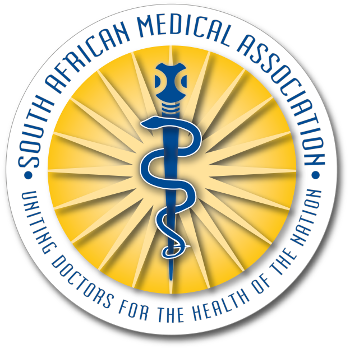FOR IMMEDIATE RELEASE
26 JUNE 2018
Some good, some bad: many questions remain in NHI legislation
The South African Medical Association (SAMA) says while some of the proposals contained in Health Minister Aaron Motsoaledi’s National Health Amendment Bill (National Health Insurance Bill) are reasonable, and keeping with the principles of the universal access to healthcare, notably for the most vulnerable of the South African population, many aspects are vague, and require more detailed clarification.
The Bill, along with the Medical Schemes Amendment Bill were released by Dr Motsoaledi in Pretoria last week.
“There are aspects of this Bill, and the Medical Scheme Amendment Bill, which we welcome. But there is too much detail which is lacking. Sadly, given the enormous challenges with public sector healthcare provision, any grandiose ideas for healthcare are not shared; our members would simply ask for a functioning system first and foremost,” says Dr Mzukisi Grootboom, chairperson of SAMA.
And, says Dr Grootboom, the Association questions the practicality of the timelines for the implementation of National Health Insurance as set out in the proposed legislation.
“We would’ve hoped government would present a clear and coherent plan for the revitalisation of the public healthcare system that is so desperately needed. Government must also realise that the human resources we have in our healthcare system – both public and private – are not a dispensable commodity, as is unfortunately how they are sometimes perceived and dealt with,” he notes.
SAMA has a number of major concerns in relation to the NHI Amendment Bill. First amongst these is the fact that the intended right to expand access to healthcare does specifically refer to access to high quality healthcare. It is imperative that NHI must not result in quality of care lower than that which medical scheme beneficiaries currently experience.
“Instead, NHI should seek to address the quality of care currently not enjoyed by non-medical scheme beneficiaries. Currently, the state has not proved it is competent to provide good quality of care, and there is no certainty that the NHI Fund (the fund which will administer NHI) will be able to contract services with private providers. This may necessitate duplicative medical scheme cover to avoid violation of rights to quality healthcare,” says Dr Grootboom.
He says other provisions, such as the fact that the Bill encourages Doctors to provide services at the ‘lowest possible price’ can only be accepted if these tariffs are reasonable and consistent with realistic costs of service provision.
As for the Medical Schemes Amendment Bill, Dr Grootboom says there are again issues that are positive but which require further clarification.
“For instance, we support the abolishment of brokers as they have dismally failed to show their value in the Private Healthcare System and this will also aid reducing non-healthcare costs. However, any money saved from this must be used to expand health services. Doing one without the other is, in our view, counter-productive,” he explains.
Dr Grootboom says a more thorough unpacking of the Bills has commenced and that SAMA will continue to engage with both its members and the government on the issues.
“At the basis of everything, though, must be an understanding that medical professionals provide an essential service to our country and their value cannot – and should not – be underestimated or devalued. At the same time we will need to understand in greater detail exactly how government plans to unpack this legislation, the time frames it intends doing this in, and the impact all of this will have on healthcare provision,” concludes Dr Grootboom.
Notes to Editors
About SAMA
The South African Medical Association was formally constituted on 21 May 1998 as a unification of a variety of doctors’ groups that had represented a diversity of interests. SAMA is a non-statutory, professional association for public, and private sector medical practitioners. SAMA is a voluntary membership association, existing to serve the best interests and needs of its members in any and all healthcare related matters.
Contact:
Head of PR & Communications
Dr Simonia Magardie
082 905 8505
Email: simoniam@samedical.org
Spokesperson
Chairperson: SAMA
Dr Mzukisi Grootboom
072 633 1114
Email: mzukisi@mweb.co.za
Spokesperson 2
Vice-Chairperson: SAMA
Prof Mark Sonderup
083 626 1909
Email: msonderup@samedical.co.za
Attachments:
| Clarification on NHI.pdf | 259.9K | 26 Jun 18 13:47 |
